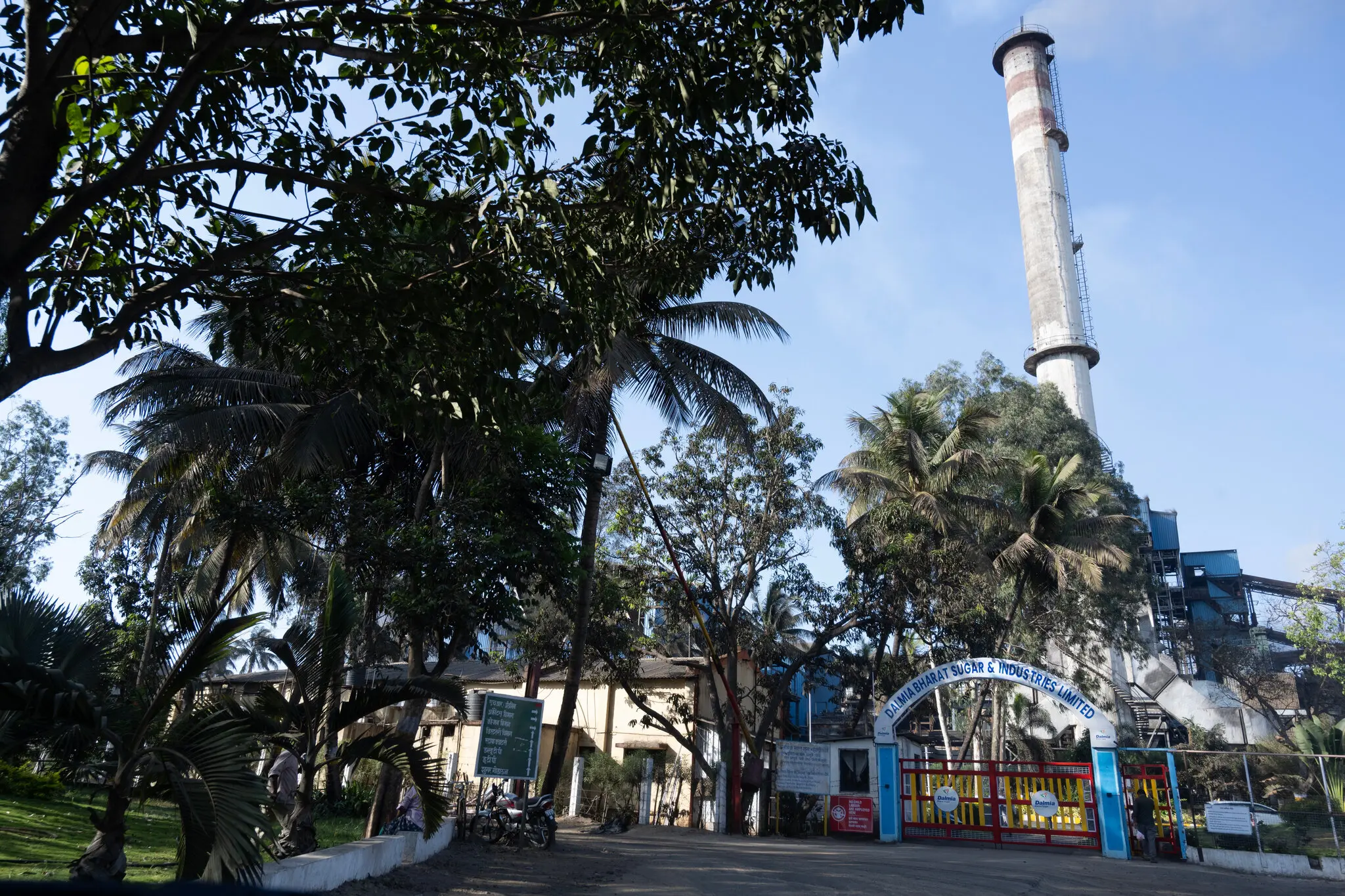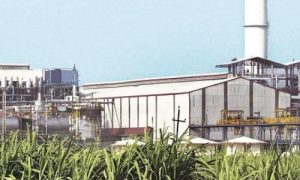How a Sugar Industry Stamp of Approval Hid Coerced Hysterectomies

A New York Times investigation reveals that Dalmia Bharat Sugar mill’s Bonsucro certification, claimed to ensure humane practices, is misleading. Despite Bonsucro’s assurances, workers face harsh conditions, including underage marriages and debt bondage. Audits are brief and lack transparency, allowing mills to control what auditors see. Women reported severe exploitation, including forced hysterectomies. Bonsucro’s certification process, used by major brands, fails to address these abuses effectively.
Bags of sugar that leave the Dalmia Bharat Sugar mill in the western Indian city of Kolhapur come with an industry guarantee: It was harvested humanely, in fields free of child labor, debt bondage and abuse.
None of that is true
The mill is certified by a group called Bonsucro, which sets the industry standard for sugar production. Brands including Coca-Cola, PepsiCo, Unilever and General Mills use the Bonsucro name to reassure customers that their supply chains demonstrate “respect for human rights,” even in places where abuses are widespread, like the region around the Dalmia mill.
But a New York Times investigation found that Bonsucro’s inspections were all but guaranteed not to find problems. Internal documents and interviews with sugar mill executives, experts and Bonsucro contractors show that mills retain tremendous control over what auditors see and whom they can talk to. The audits are carried out hurriedly — from the mill to the farms in a matter of days — and the details are kept secret, which prevents public second-guessing.
Even the auditor who said she inspected the Dalmia mill said turning up problems was extremely rare.
“I’ve been auditing for the last two years, and I have not found any violations,” said Swapnali Hirve, who said she also inspected a mill owned by NSL Sugars. Both mills are in the state of Maharashtra.
But women who cut sugar cane that ends up in these mills work in brutal conditions. In interviews, they told us that they were pushed into underage marriages so that they could cut sugar with their husbands. They were locked into years of debt by sugar mill contractors. Some, like thousands of other working-age women in this region, said they felt pressured to get unneeded hysterectomies to resolve common ailments like painful periods and keep working in the fields.
One woman we talked to said that a contractor for the NSL mill even lent her the money for the surgery.
Yet Bonsucro certified the Dalmia mill. Two framed certificates, bearing Bonsucro’s olive green logo, hung in the factory’s back room during a visit last fall. NSL’s mill also passed its inspections and is in the process of being certified, mill executives said last year.
The audits are particularly notable because Bonsucro was warned years ago about debt bondage and child labor in India, records show. And Bonsucro’s chief executive, Danielle Morley, said in an interview that she knew about the unusually high rate of hysterectomies among sugar cane cutters in Maharashtra — even before a Times investigation in March.
Ms. Morley said that inspectors were never specifically told to look for evidence of coerced hysterectomies but will be from now on. “Going forward,” she said, “that’s what we’ve committed to.”
But she said the problem had deep social and economic roots that Bonsucro alone could not solve.
The Brutality of Sugar
An investigation by The New York Times and The Fuller Project uncovered how big Western brands help finance a uniquely brutal system of labor in India’s sugar fields.
Bonsucro engages in what is known as social auditing, an inspection process that certifies many products that people consume or wear — especially those with labels like “sustainably produced.” Sometimes companies do the auditing themselves. Often, they outsource it to one of a niche industry of firms.
Human rights groups have argued for years that social auditing paints over abuses. And scholars have questioned whether groups like Bonsucro improve labor conditions.
“The question you need to ask is, what is the ultimate purpose of these organizations?” said Philip Schleifer, a professor at the University of Amsterdam who has researched Bonsucro. “Is it really to address problems, or to serve powerful companies?”
In Maharashtra, human rights problems persist in part because practically everybody says they are someone else’s responsibility. Factory owners blame the middlemen contractors who hire the laborers. Dalmia and NSL executives, for example, say that they do not directly employ the laborers, do not dictate the working conditions in the fields and see hysterectomies as a wider issue unrelated to the industry.
Contractors, in turn, say the factories are responsible. Big sugar-buying companies — both Indian and international — say it is tough to monitor farms. And consumers often have no idea about the origins of the sugar in the products they buy.
Bonsucro was meant to help fix that. Instead, its inspections have sent a false message that sugar mills that profit off abusive labor are actually problem-free.
In Maharashtra, hysterectomies are an extreme yet common consequence of this abusive system. Sleeping on the ground, giving birth in the fields and forgoing doctor visits can cause a host of gynecological problems. Faced with the misery of menstruating in 100-degree heat without running water or shelter, many women have hysterectomies to end their periods or to treat routine health conditions. Removing a uterus and ovaries can have lasting health consequences, especially for a working-age woman.
“My working conditions in the sugar cane fields led me to have a hysterectomy,” said Anita Bhaisahab Waghmare, a sugar cane cutter in her 40s who said she had worked since she was 13 for a contractor for the Bonsucro-certified Dalmia mill.
Auditors, though, say they have too few chances to speak to workers like Ms. Waghmare. The inspection process is highly stage-managed. Factory executives say they tell inspectors which farms they can visit — and choose only the best.
Bonsucro employs 30 people, many of whom operate from a London co-working space. Contractors carry out Bonsucro inspections, which are typically paid for by the factories themselves.
“We’re trying to do the right thing in a difficult sector with relatively limited resources,” Ms. Morley said.
Bonsucro said that Dalmia was vetted under an old standard. Only some fields were audited and, while the factory itself was certified, only some of its sugar qualifies. When the factory is recertified, Bonsucro will look at its supply chain more broadly.
Even after a Times investigation linked both Dalmia and NSL to labor abuses, Bonsucro did not sever ties with either company. Ms. Morley said Bonsucro was in discussions with the companies about the reported abuse.
But in the supply chains of the two mills that were inspected, she said, auditors saw no evidence of it.
How Did This Happen?
Bonsucro was formed in the mid-2000s at a critical moment.
Brands like Nike had faced boycotts over child sweatshop labor. Oil companies were under fire for pollution. Western companies faced the possibility of government regulation at home over labor and environmental practices abroad.
Sugar had not come under particular scrutiny, but it was widely known as one of the world’s most exploitative industries, involving a water-guzzling crop that requires backbreaking labor to harvest. Sugar cane farming conjured images of the cruelty of the trans-Atlantic slave trade.
Other industries had developed an answer to this threat of regulation. They embraced social auditing and formed certification bodies to inspect supply chains and hold companies to a standard.
For companies, it was a win-win. It allowed them, not governments, to set standards. And it signaled to the public that they worked with clean factories and humane suppliers.
While most advocacy groups preferred government regulation, a few embraced this model. Passing laws is hard. Better, they figured, to get companies to change on their own.
That is how Bonsucro began, as a mix of nonprofit groups and big sugar buyers: the World Wildlife Fund, Coca-Cola, Cargill and others.
WWF got involved as part of its broader ecological mission because sugar consumes so much water. Its participation was novel for an environmental group, Professor Schleifer said. “Earlier, there was a focus on more confrontational tactics, like boycotts,” he said.
In a 2004 internal memo that we reviewed, Jason Clay, of WWF said that a certification program would provide needed oversight. “My assessment was, we would never get governments to set regulations,” Mr. Clay said in an interview. “But we could get companies to.”
The case for social auditing assumes that consumers will pay a premium for green, humanely made products. Customers seem willing, for instance, to pay a little more for products like coffee that are stamped with the Fairtrade logo.
Sugar is different. Sugar from a variety of sources gets mixed together before it arrives on grocery store shelves. And consumers do not necessarily drive sales of sugar. Big companies like Tate & Lyle, Coca-Cola and Unilever do.
And according to sugar mill owners and others involved with Bonsucro, big companies were rarely willing to pay a premium for certified sugar.
That conflict lies at the heart of Bonsucro. Its seal of approval carries little value with customers. So sugar mills have little financial incentive to improve their practices to seek certification.
“It sounds like a minor difference,” one former Bonsucro member said. “But it’s huge.”
‘This Isn’t the Real Scenario’
Bonsucro focused first on Latin America, where a few dominant players often control much of the sugar cane harvest. That made audits relatively straightforward.
India, the world’s second-largest sugar producer, was more complicated. Each mill buys from thousands of farms, all of which would need to be audited to truly certify a supply chain.
“Organizing the smallholder farmer world in relation to migrant workers is beyond what Bonsucro can solve,” said Jeroen Douglas, a sustainability activist who was involved in the discussions around Bonsucro’s founding.
When auditors arrive in Maharashtra, they face a daunting question: Which farms should they inspect?
NSL Sugars, for example, buys from thousands of farms, said A. Arulappan, a company executive. When Ms. Hirve, the auditor, arrived, the company provided her with a list to choose from.
“We select good, progressive farmers, with loyalty to our unit,” Mr. Arulappan said in an interview.
Ms. Hirve, who conducted Bonsucro audits on behalf of the firm Control Union, acknowledged starting with what the mills give her. “They submit a farmer list,” she said. “During the audit, we choose the sample randomly.”
Ms. Morley, the Bonsucro chief executive, said she was surprised to hear that mill executives handpicked the farms. She called it “problematic.”
Sugar mill officials then accompany auditors to farms, Mr. Arulappan said. But auditors rarely speak to sugar cane cutting laborers, a Dalmia executive, S. Rangaprasad, said.
That oversight gap is significant because records show that Bonsucro was warned years ago that its inspections were insufficient at spotting abuses that were known to be rampant in India.
In 2018, Bonsucro commissioned a team of Columbia University graduate students to evaluate its effectiveness. The students focused on India. Before they left, they read local news and researched the Maharashtra sugar industry. They knew they were heading into a system that could be deeply harmful to workers.
When they arrived, though, they encountered many of the same obstacles that supply chain auditors face while inspecting sugar mills.
Sugar mill owners gave the Columbia team lengthy interviews but tightly restricted their access to the fields and workers.
“They planned it very strategically to make sure we did not reach the farmers directly,” said Priya Patil, an auditor who worked as an interpreter for the project. “There were moments where I felt like, ‘This isn’t the real scenario.’”
In 2019, a local government report revealed what those conversations might have yielded. Researchers surveyed 82,000 female sugar cane workers and documented abuses including debt bondage and child labor. About one in five women had undergone hysterectomies.
The Columbia team released its report that same year. It noted a series of risks — child labor, debt bondage and gender discrimination — but said that the researchers had been so tightly controlled that they could not study them.
In some cases, the researchers wrote, Bonsucro’s oversight system was unlikely to catch these abuses either. Because none of the audit details are public, nobody could know for sure. “These concerns underscore the weaknesses of social auditing,” they wrote.
Bonsucro does not make audit details public, Ms. Morley said, because companies would have to agree to it. “Everything that we do has to be discussed and negotiated and agreed upon by all of our members.”
She concedes that social auditing is flawed and can miss serious problems. “The challenges are quite well documented,” she said. But she said that Bonsucro was helping to change the industry by pushing for companies to improve their practices.
“The sugar cane sector is going on a journey of improvement,” she said. “But it does come from a fairly low base line.”
Source Link : https://www.nytimes.com/2024/07/30/world/asia/sugar-human-rights-bonsucro-india-hysterectomies.html















